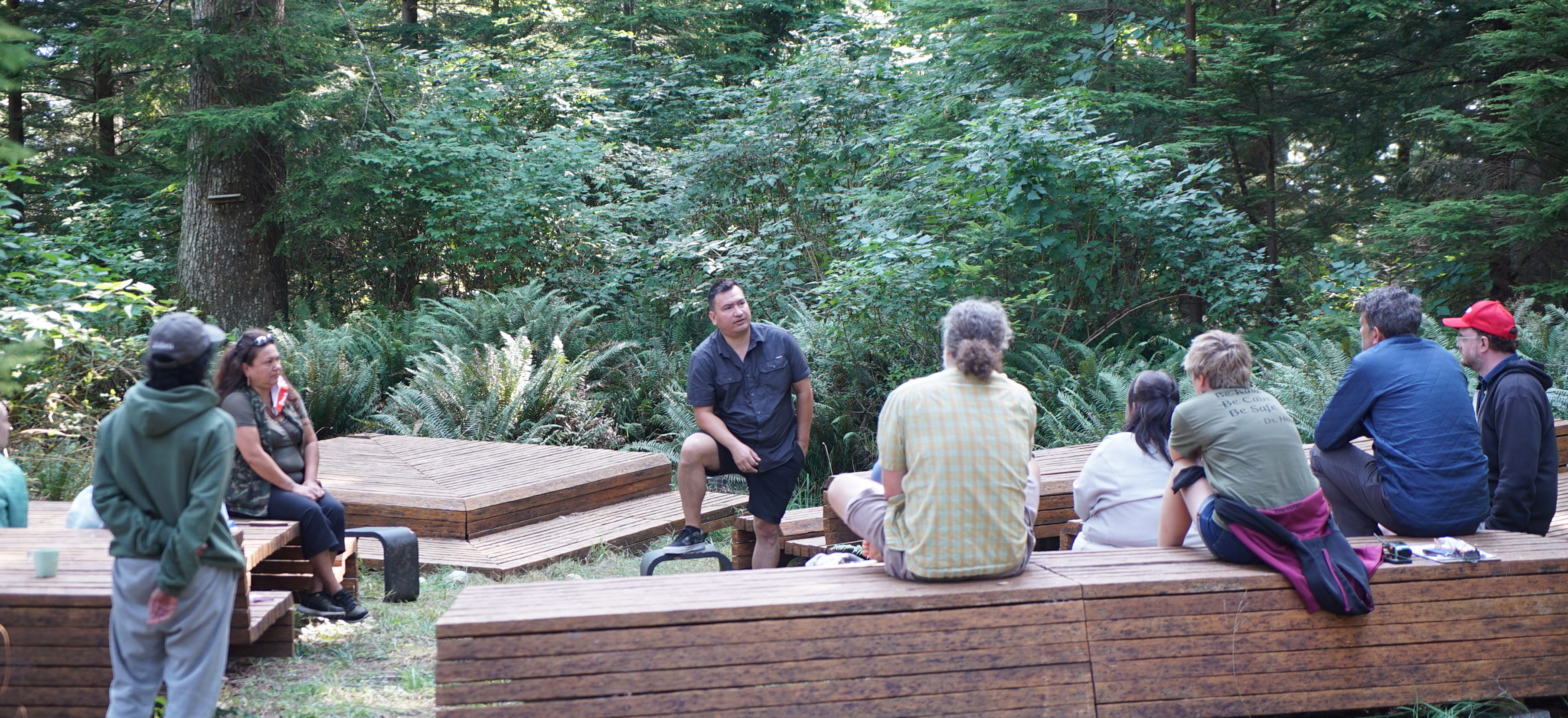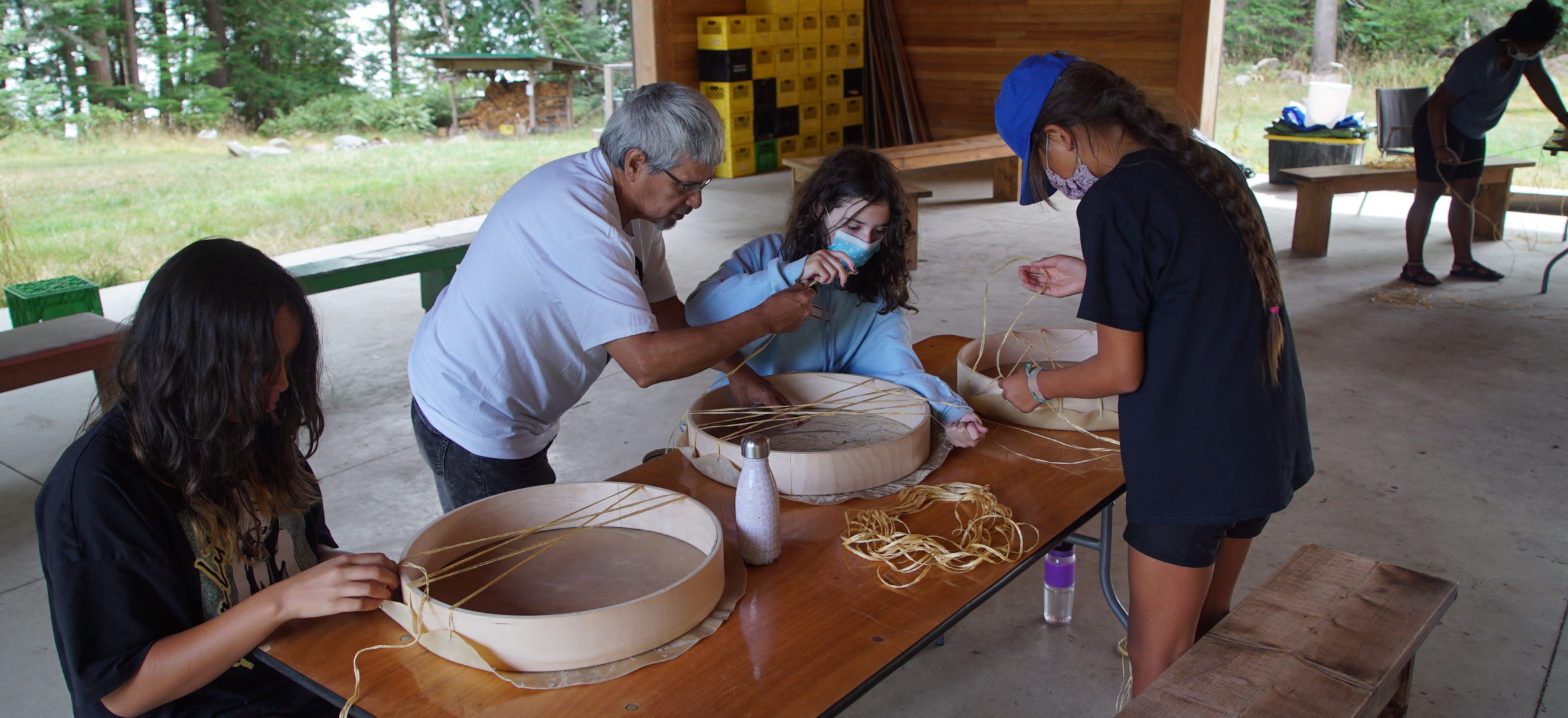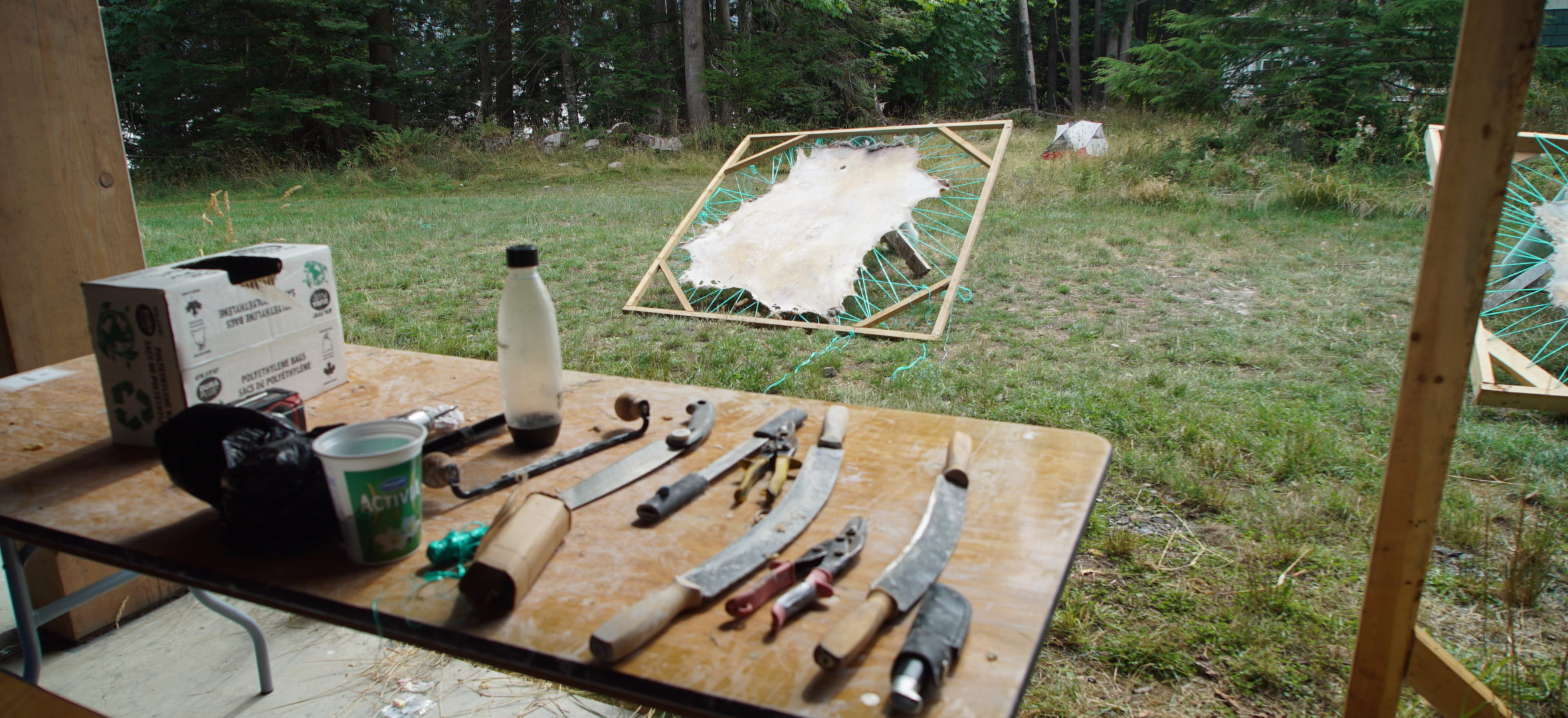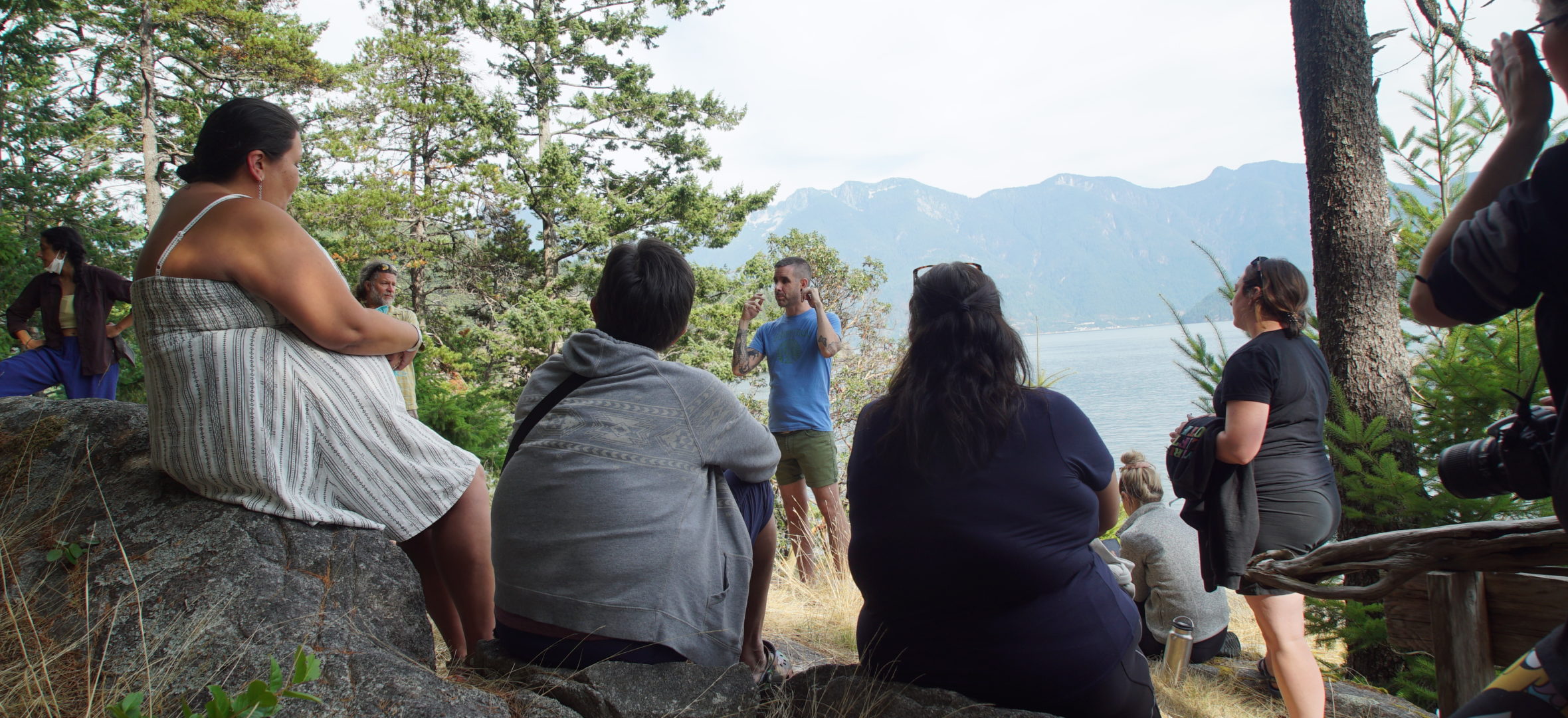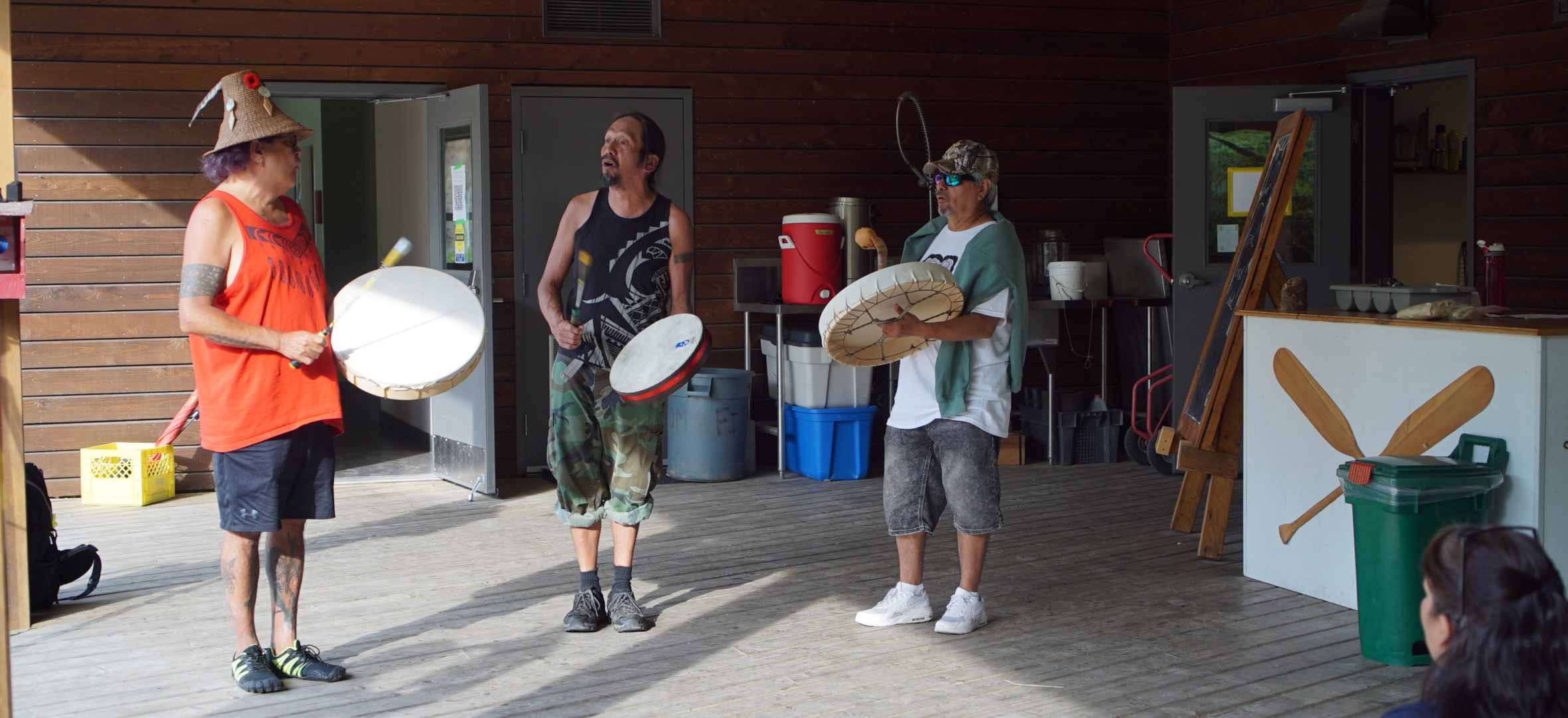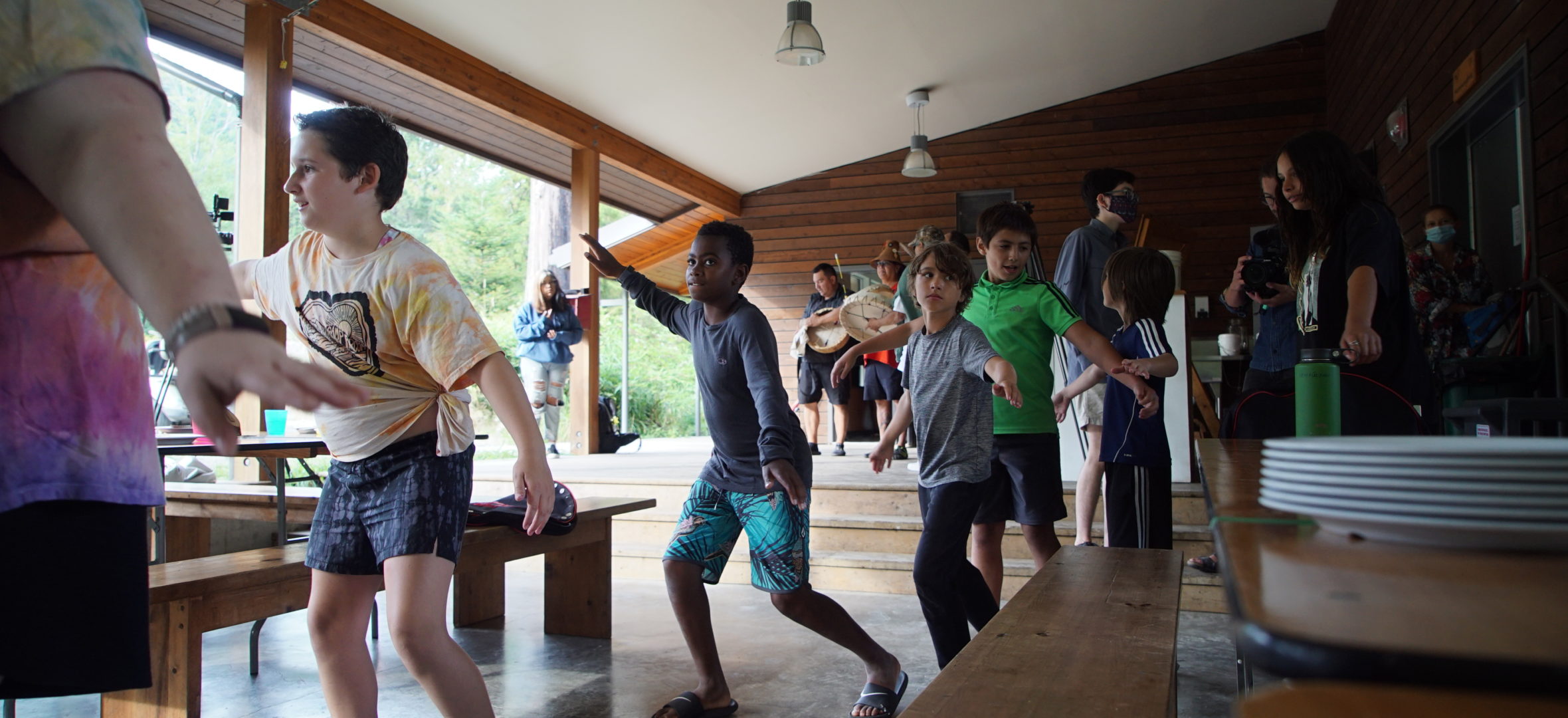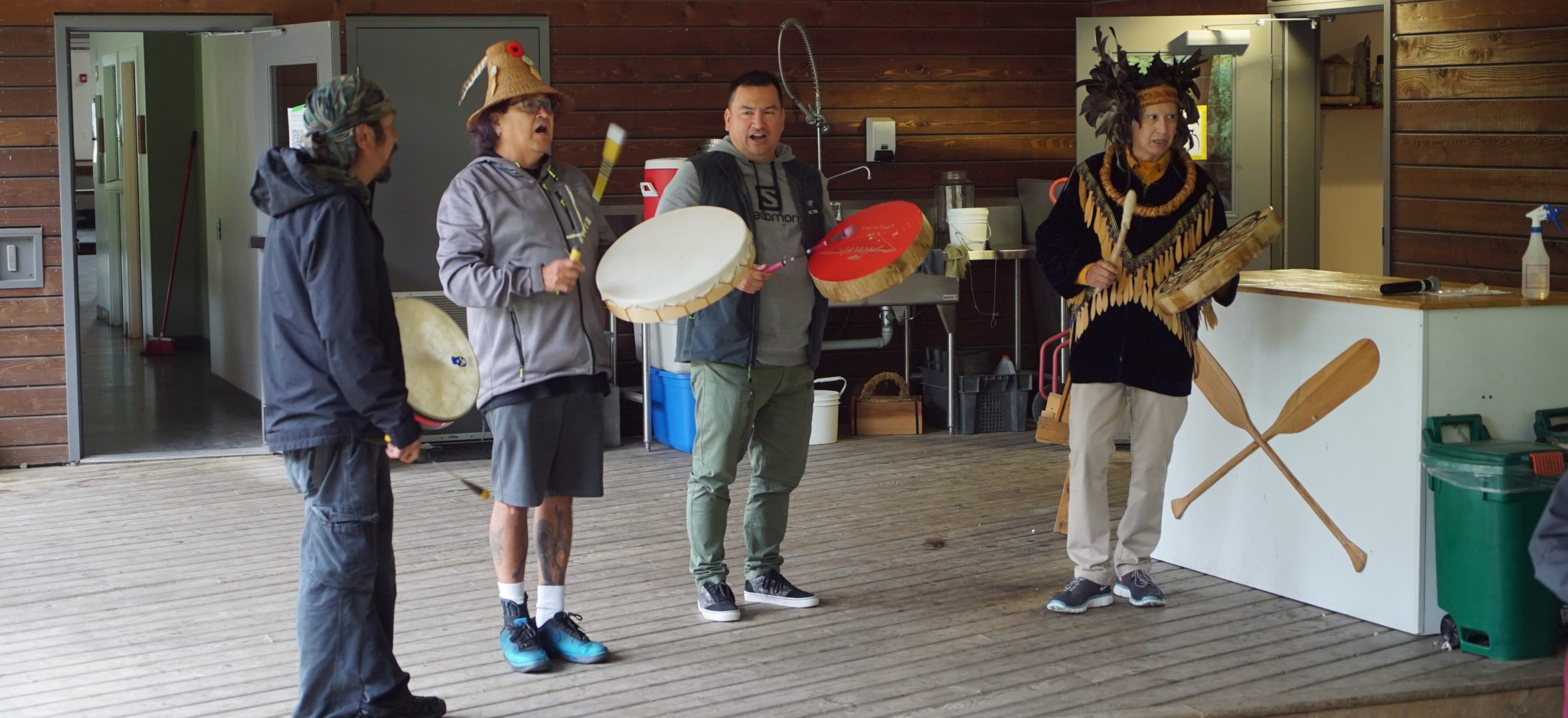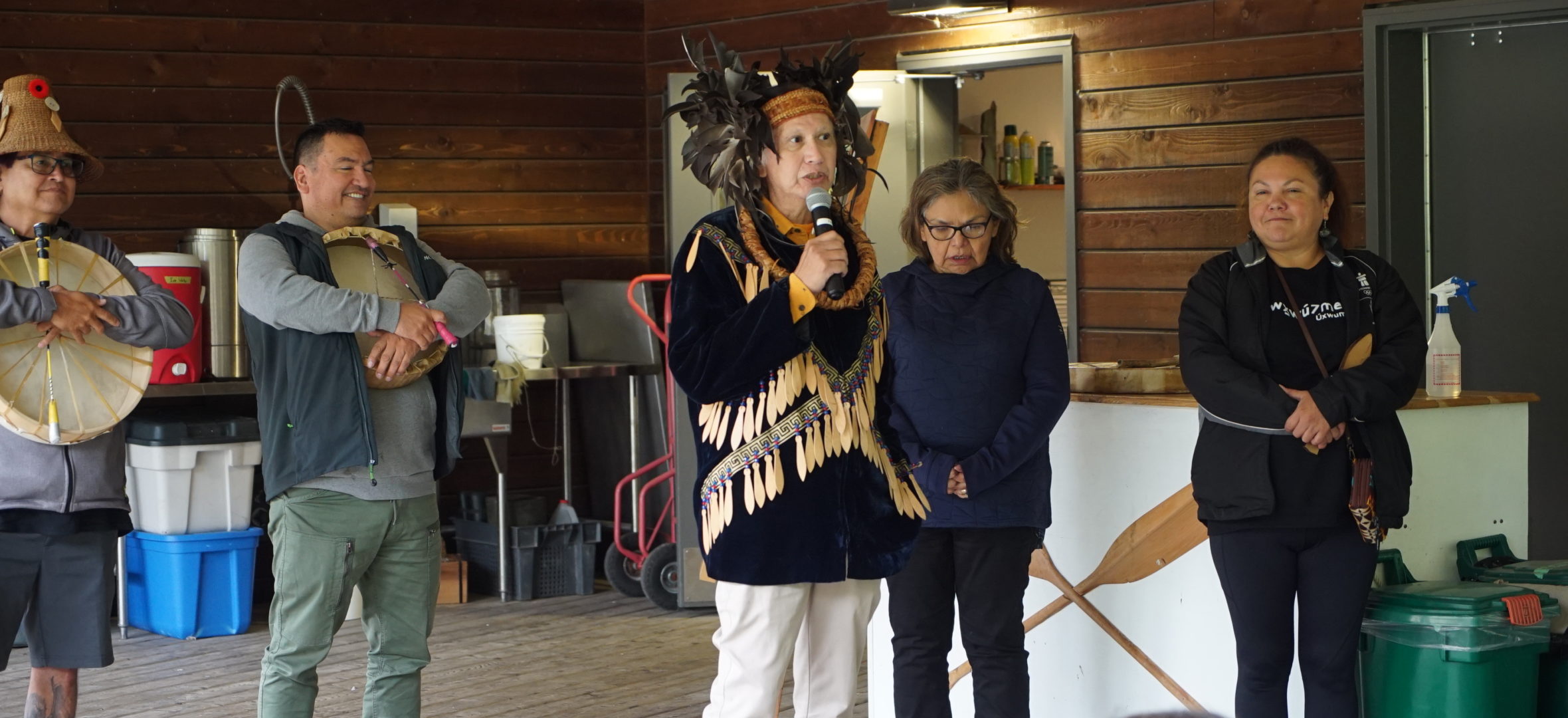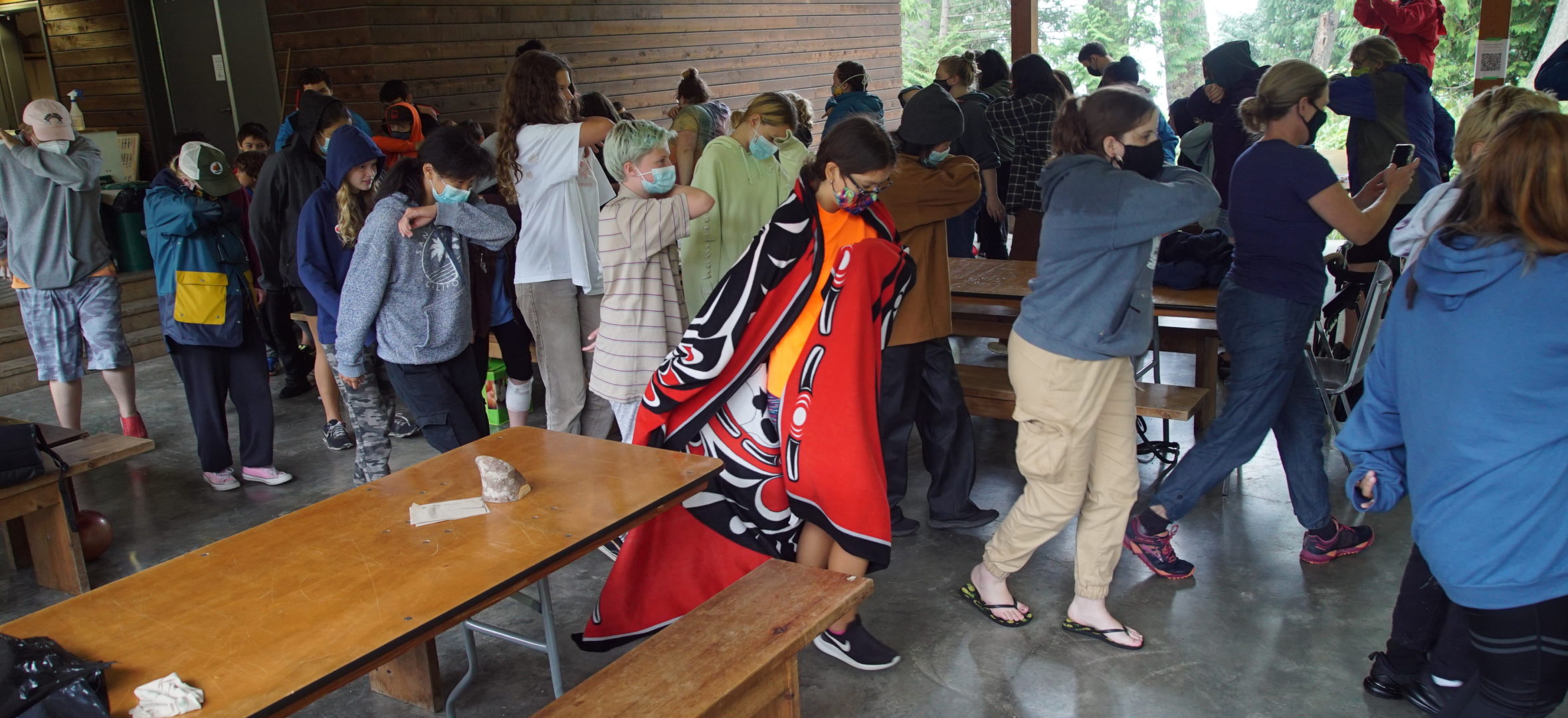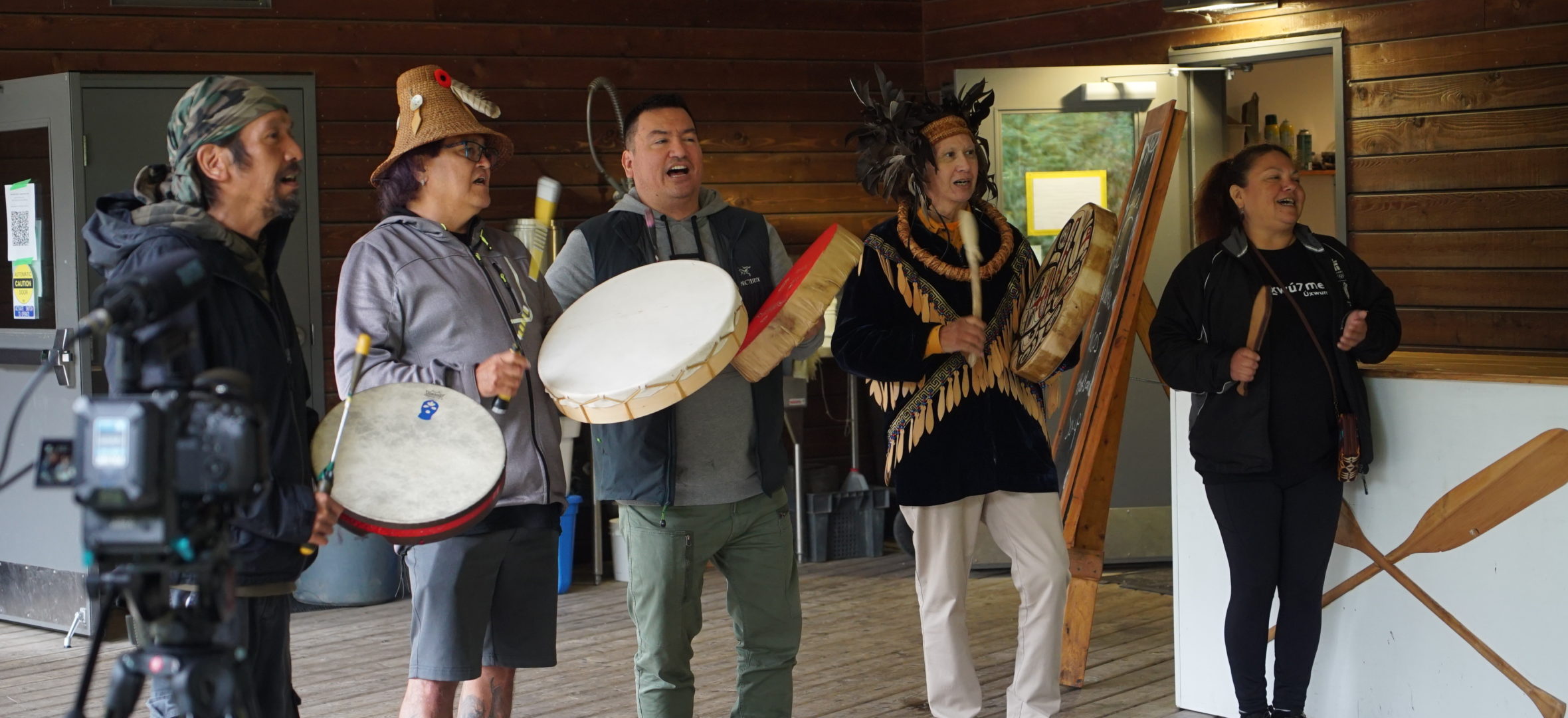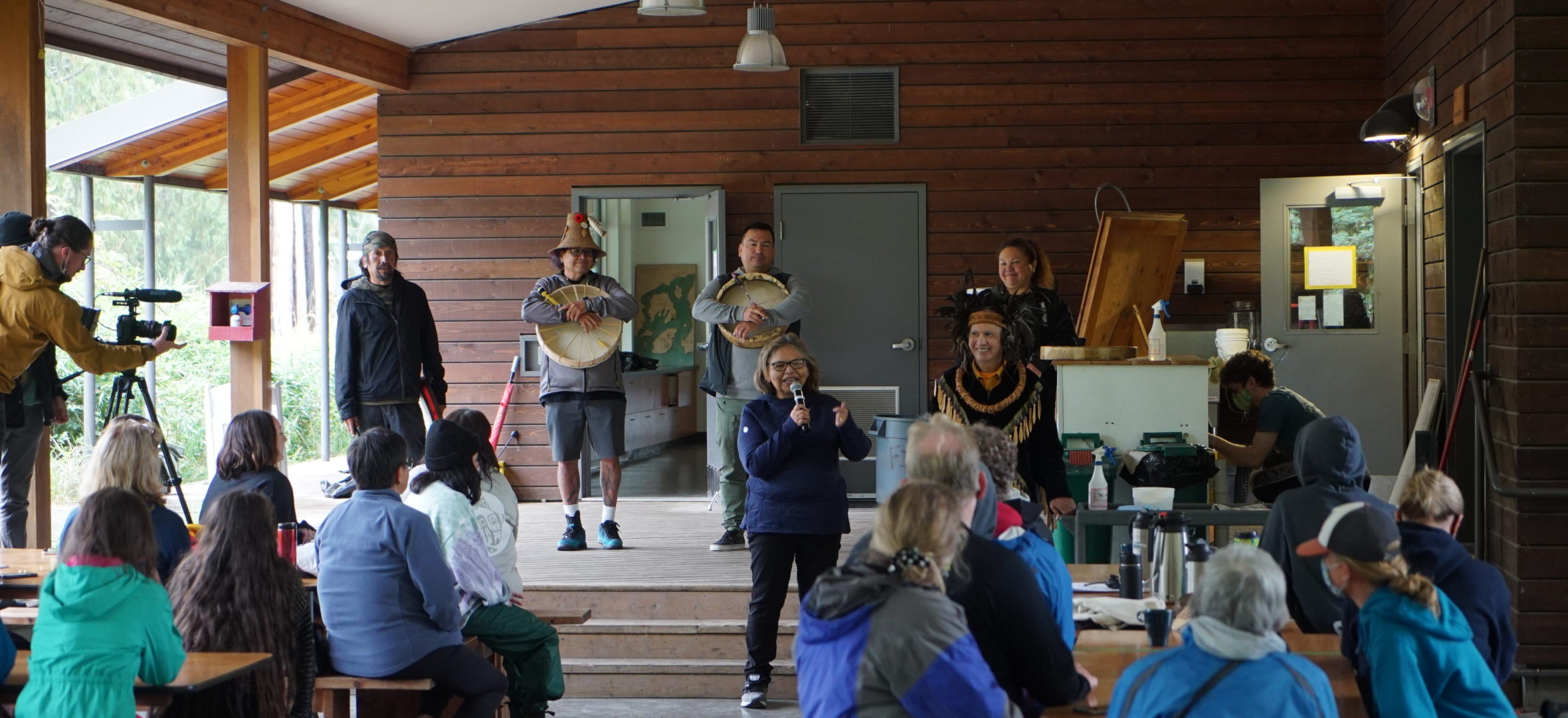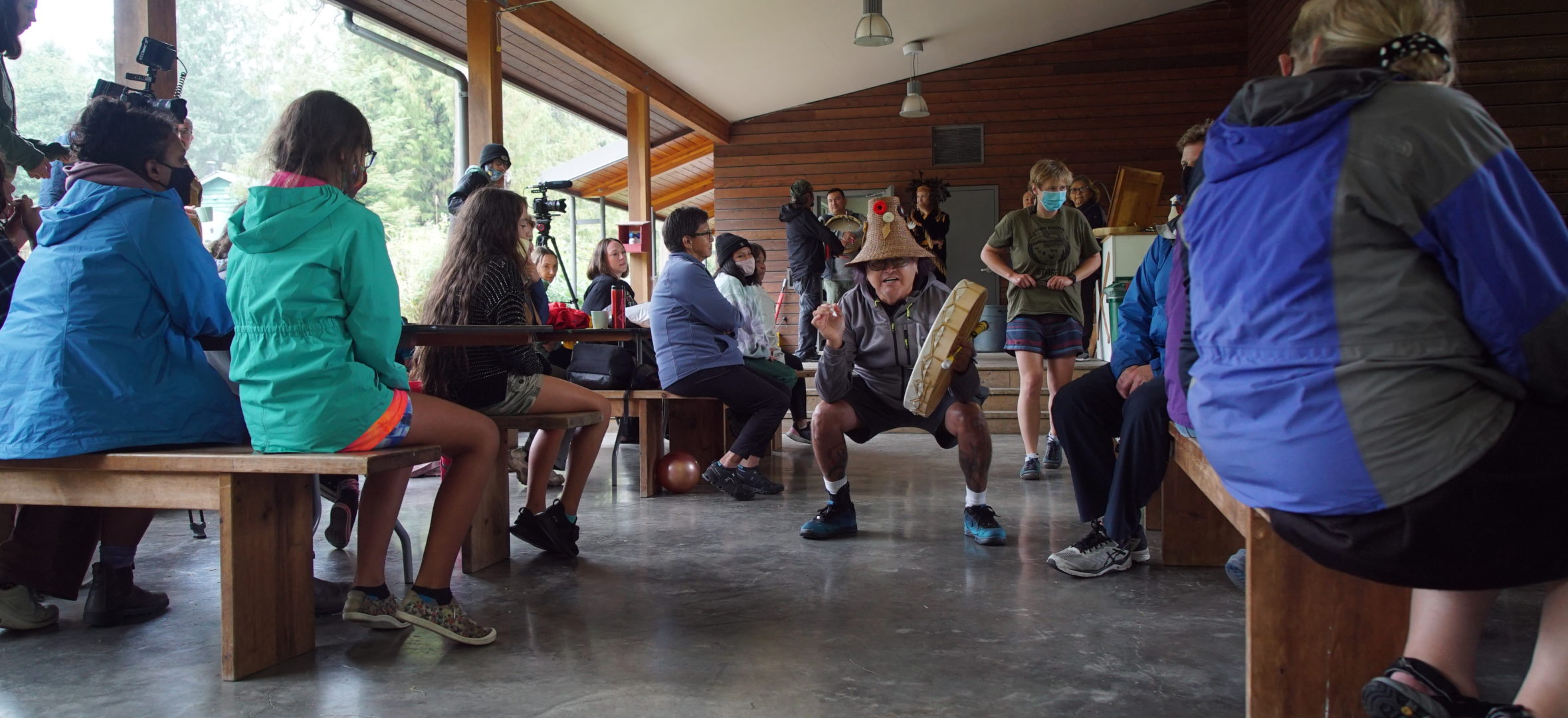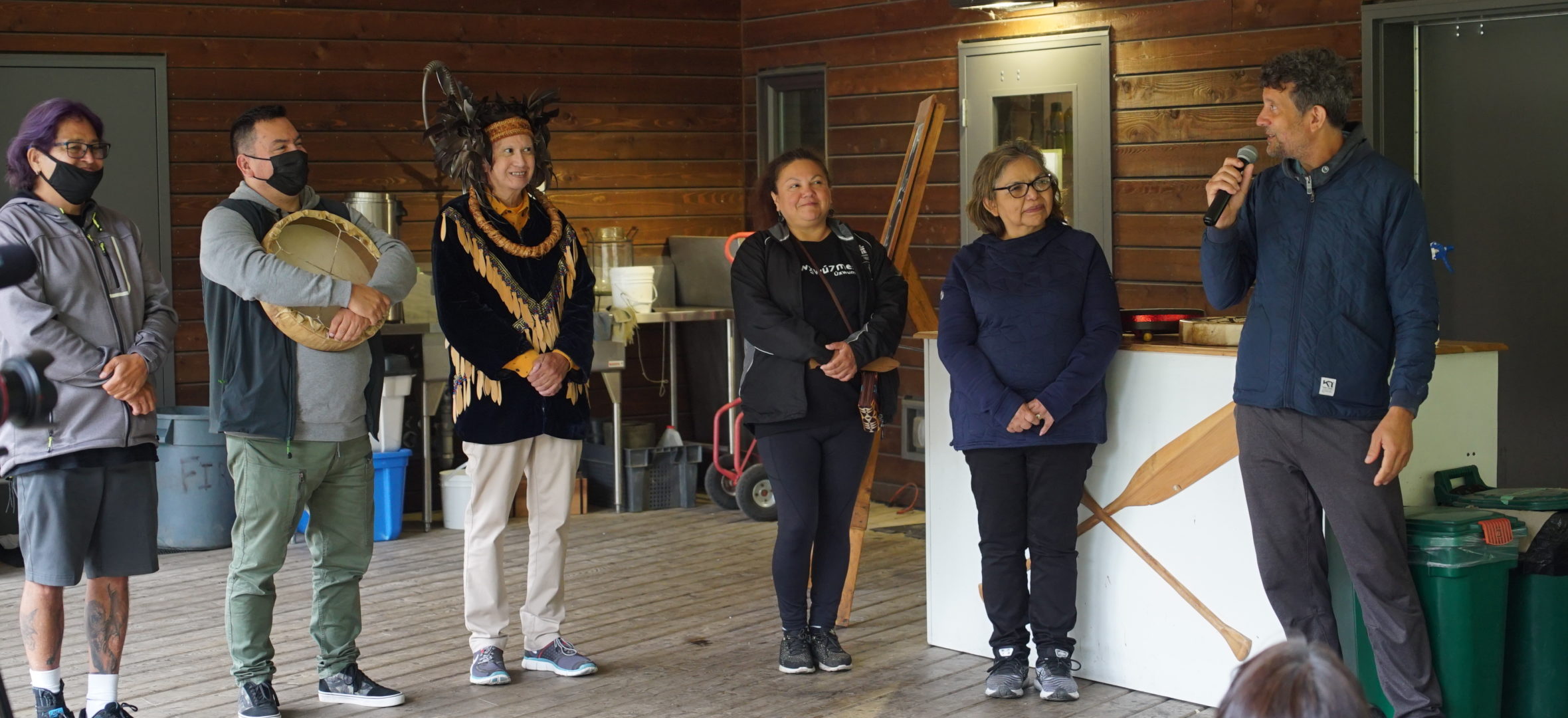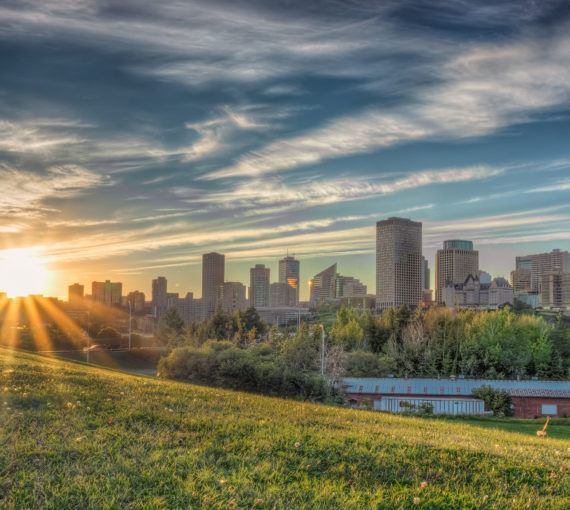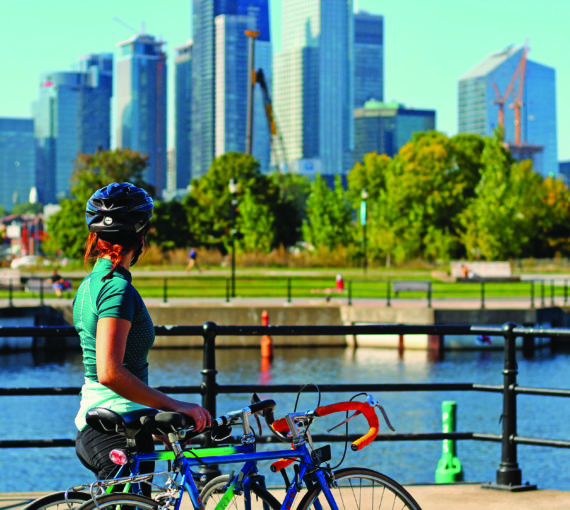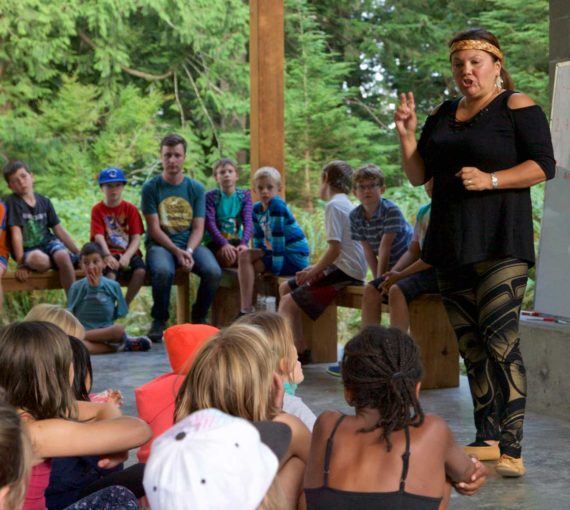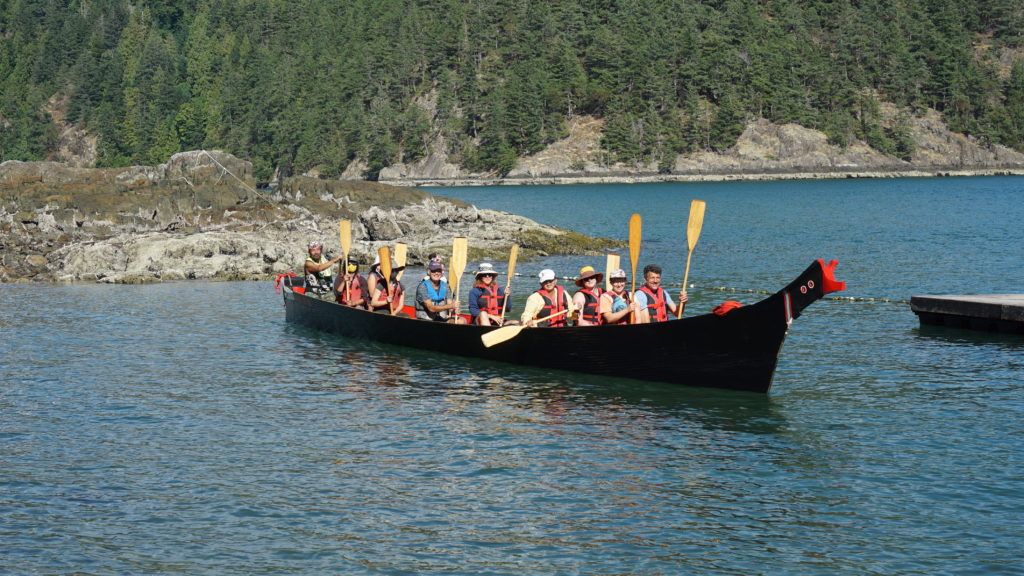
A highlight was a trip in the Koholth — a Squamish ocean-going canoe. While Squamish camp leader Chiatxten told the Chá7elkwnech origin story and sang and drummed "Yewyews" (the Orca Song), two pods surfaced near the canoe. (Photo: Trevor Leach)
Since 2015, we’ve worked with the Squamish Nation to offer Camp Suzuki at Chá7elkwnech (Gambier Island), a multi-generational, nature-based summer camp that combines environmental stewardship and Indigenous-led outdoor education in British Columbia’s spectacular Átl’ka7tsem (Howe Sound).
Summer 2021 reunion
Although interest in camp doubled this year, COVID-19 pandemic health restrictions allowed only one session of camp in August 2021, at about half normal capacity (to maintain safety), but with the same number of Squamish leaders.
It was the first time Camp Fircom was able to run a gathering on the island since this pandemic began.
And it was a celebratory, touchstone event. Many conversations among the campers noted the powerful import of the moment. It brought together conservation, Indigenous culture, neighbourliness and an Indigenous understanding of the profound history of human and ecological relationship in the region.
Squamish elders Jackie, Janine and Stuart Gonzales’ cedar brushing ceremony opened the week. Every day was interspersed with Squamish songs, stories and ceremony.
A highlight was a trip in the Koholth — a Squamish ocean-going canoe. While Squamish camp leader Chiatxten told the Chá7elkwnech origin story and sang and drummed Yewyews (the Orca Song), two pods surfaced near the canoe.
When Chiaxten started to drum and sing Yewyews (The Orca Song) by Latash from the centre of the canoe, a second pod emerged in formation, led by a large bull. The orcas slowly swam directly toward the canoe and submerged for about two minutes before resurfacing on the other side.
It was only the fourth time in the 30 years Chiaxten had travelled in the Koholth that he’d ever seen orcas.
Learn more about camp in summer 2022
Many conversations among the campers noted the powerful import of the moment. It brought together conservation, Indigenous culture, neighbourliness and an Indigenous understanding of the profound history of human and ecological relationship in the region.
Indigenous-led outdoor education guide
COVID-19 made Camp Suzuki impossible in summer 2020, so we produced a report to inspire and guide others to build on and expand partnerships for Indigenous-led outdoor education throughout Canada and beyond.
Setting Up Camp: Lessons from Camp Suzuki at Chá7elkwnech: Walking with the Squamish, describes how educators, activists, Indigenous leaders and engaged community members stepped forward, reflecting people’s emerging desire to integrate and share Indigenous histories and ways of knowing. It looks at the lessons learned from the experiences of 170 people ranging in age from eight to 75, singing songs together and learning about Squamish language, cedar weaving and Indigenous plant uses — and much more.
Now we’re working with enthusiastic people to develop their Indigenous-led camps based on our model.
Finding Solutions features stories of caring people like you who make everything here possible. You can read, share, discuss, take action, join, donate. Whatever you choose, you’re helping protect Earth’s life-support systems. Thank you.
